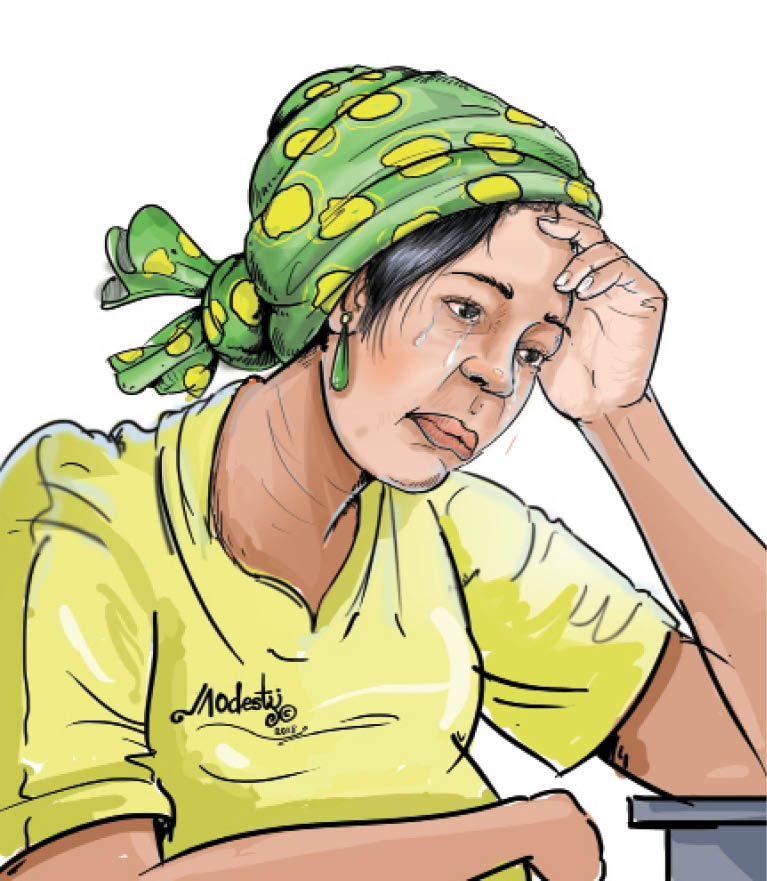Ways to keep Vesico Vaginal Fistula at bay
78-year-old Hajo Abdullahi was one of those who received treatment for Vesico Vaginal Fistula (VVF) through a free medical programme offered by the federal government in her state. She heard about the programme from one of her distant relatives who works at the National Assembly. Before then, she had sold her properties and spent all […]

78-year-old Hajo Abdullahi was one of those who received treatment for Vesico Vaginal Fistula (VVF) through a free medical programme offered by the federal government in her state.
She heard about the programme from one of her distant relatives who works at the National Assembly. Before then, she had sold her properties and spent all her earnings seeking herbal treatment for the condition.
She developed the condition at the age of 18 when she went into labour for her first child. She suffered shame and abandonment for several years in addition to losing the baby.
She got better after the surgery and in excitement dressed like a bride saying she never knew she would ever stop leaking urine.
Another survivor ,Farida who hails from Maiduguri developed VVF after she was raped at the age of 10 by insurgents. She had to undergo multiple surgeries before she got better.
Vesico Vaginal Fistula (VVF) is an injury that occurs during childbirth characterized by formation of a hole between the vagina and bladder or rectum. The affected woman continuously leaks urine and or faeces from her vagina without control.
National Coordinator of Obstetric Fistula programme of the Federal Ministry of Health, Mrs. Peters Ogunmayin Idowu, said the commonest cause of VVF is prolonged obstructed labour.
“When a woman is in labor for too long , and there is no intervention to reduce the pain, or to bring out the baby, Vesico Vaginal Fistula may develop. Obstructed labour lasts for more than a day or more than 24 hours,” she said.
She advised medical personnel to pass a catheter into the pregnant woman’s bladder once they notice she has had active labour for more than six or seven hours. “It is when the bladder is full, that it will burst; that means when the bladder is full and the urine is not released, then the friction between the head and the baby canal, could cause fistula to occur,” she said.
The National Coordinator said there are VVF cases all over the country but that it was worse in the northern states.
She said other causes of VVF include unsafe caesarian section, female genital mutilation, gyneacological operations like fibroid, rape and congenital abnormality, among others.
Some problems faced by women suffering from VVF include smelling urine/faces, pain during intercourse, urinary tract infections, bladder or kidney stones, Pelvic Inflamatory Disease (PID), infertility, marital discords and divorce, depression, stigmatization, unemployment , and social isolation.
She said early marriage also contributes to the problem, “When a small girl of between 10 and 12 years for example is given out in marriage , the pelvis is not matured; it is a narrow place and the baby coming is not small, and even if it is small, that canal is not big enough for the baby to come out.”
Mrs Idowu added that VVF was not witchcraft but a condition that could be prevented and cured. On ways to prevent VVF , she advised every pregnant women to attend ante-natal care, and to also deliver in a health facility with a skilled birth attendant.
She said there should also be timely diagnosis of prolonged labour and timely delivery usually through cesarean section.
“Education is also very important,” she said “ When a girl goes to school, it can help delay her getting married and getting pregnant.”
Mrs Idowu commended the federal government and some states for efforts against VVF. According to her, Kastina State established a VVF centre since 1982 before it was taken over by the federal government , adding that it is the largest fistula centre in West Africa.
She said that some facilities have been taking over by the federal government such as the National Obstetric Fistula centre in Abakaliki. She said that there were about 20 state owned VVF facilities, and two missionary VVF centres in the country.
She called on the National Assembly to give better attention to VVF like dedicating years or special programmes to the condition as was done by previous administrations. She said at the moment there was no budget for VVF.
“We projected it but the National Assembly removed it. I don’t know whether it is because they have not met VVF patients before. There is need for more empathy for the plight of these patients. “
The national VVF coordinator who spoke to Daily Trust during a sensitization programme on VVF organised by the ministry in collaboration with the Survive Fistula HealthCare Foundation (SFHCF) in Kuje , Federal Capital Territory (FCT) advised women who have gone through VVF repair to opt for cesarean section.
The programme was done with support from Christian Blind Mission (CBM) under the Women’s Health project which also supports women with disabilities.
She said after VVF repair or surgery, women should give enough time to heal before meeting their husbands, and that when they get pregnant , they should not think of vaginal delivery.
“The woman should be left alone for like a year to get healed. And if she must engage in sexual relations, we often , advise the husbands to do it gently. She should relax before getting pregnant again and should not deliver at home but go to a health facility for cesarean section,” she advised.
She said the Minister of Health has been passionate about ending Vesico Vaginal Fistula (VVF) and recently proposed to have another five national VVF enters in Nigeria. He is also fighting to ensure there is budgetary allocation for VVF in the budget , she said.
